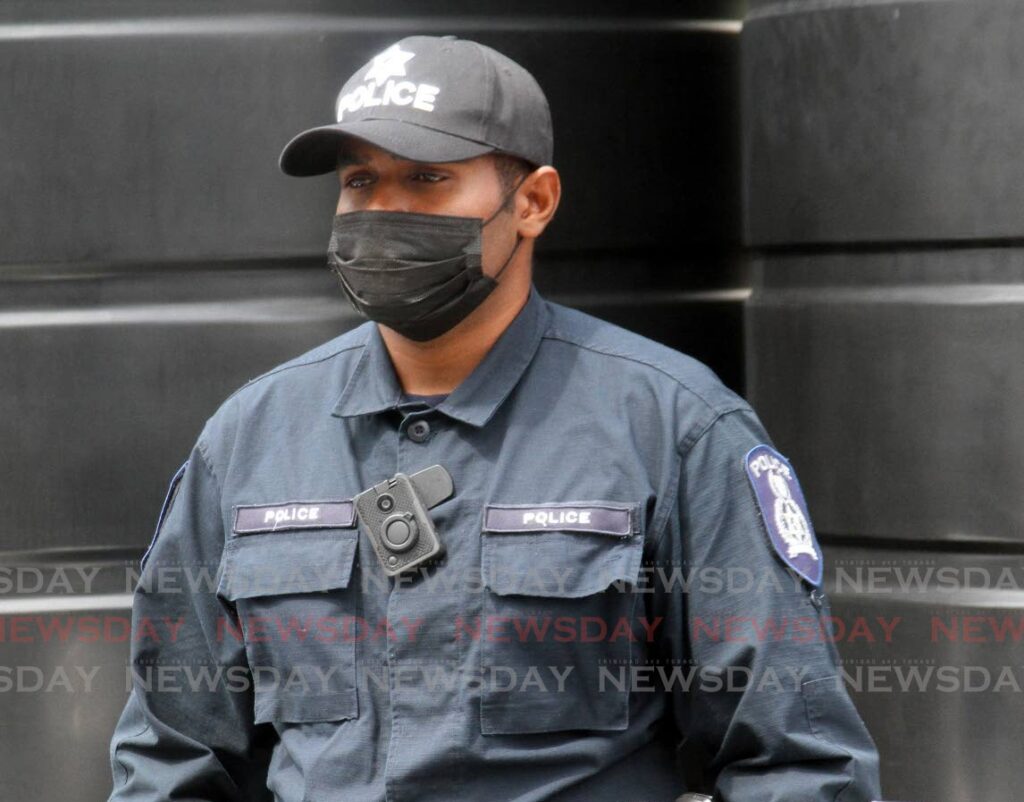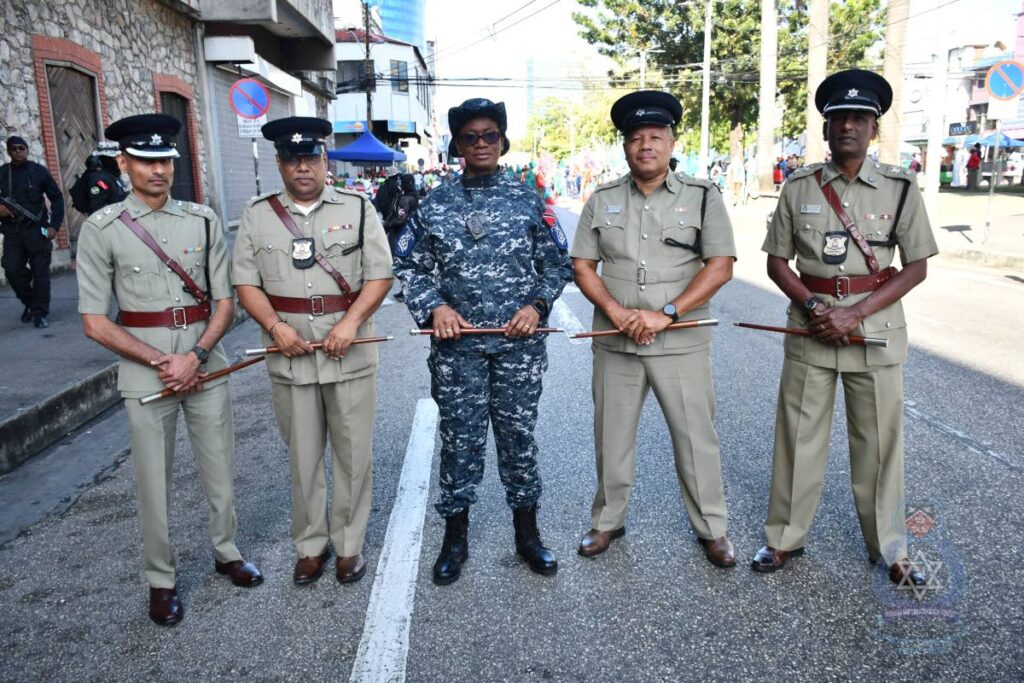Police Complaints Authority to CoP: Get officers to turn on body cameras

Over 1,200 frontline police officers are equipped with body-worn cameras, to protect them from allegations of misconduct and abuse, but there seems to be lack of enforcement which compels the officers to switch them on while on duty.
This is according to senior officers who said the matter has reached the attention of Commissioner of Police (CoP) Erla Harewood-Christopher.
Manager of the police corporate communications unit Joanne Archie said on Saturday she had reached out to the CoP for a response to Newsday's queries.
In February, Harewood-Christopher told Parliament's Joint Select Committee on National Security 1,000 body-worn cameras had been distributed to officers across the ten police divisions, the Inter-Agency Task Force and the Guard and Emergency Branch.
She said then another 400 units will be available by the end of May.
During the tenure of former police commissioner Gary Griffith and acting police commissioner McDonald Jacob, body-worn cameras were introduced for the first time in the service but delays in outfitting police stations with charging docks and other devices to allow officers to download footage delayed the implementation.
A departmental order signed by former acting police commissioner Stephen Williams, on August 11, 2017, details standard operating procedure for the use of body-worn cameras and makes it mandatory for the cameras to be switched on once an officer is dispatched on patrol.
The camera must remain on until the officer completes his/her shift and station shift commanders are responsible for maintaining a camera register, documenting the issue, return and recorded viewing history.
The move to implement body-worn cameras came after claims of extra-judicial killings, police corruption, abuse and other acts of serious misconduct, and it was anticipated that such complaints would be reduced if there were audio and visual recordings of those incidents.
Police Social and Welfare Association president ASP Gideon Dickson on Saturday said, he was aware there was "limited usage of body-worn cameras" but was unaware of reports that officers were not switching them on while on duty. He said the use of such technology was a step in the right direction but noted, "once there was change, there would be resistance to change." Dickson said he was aware that there were plans to acquire more cameras.
Dickson said the police commissioner had a responsibility to encourage that change and believed it was necessary to retrain and re-certify officers who must use body-worn cameras.
In response to questions, the Police Complaints Authority, which investigates allegations of serious police misconduct, including police-involved killings, said, "Body camera footage is one of the most useful and effective tools in investigating criminal offences involving police officers and serious police misconduct. This type of evidence captures exchanges during police interaction with civilians and/or the conduct of the police during police operations. The footage also assists with dispelling allegations against officers and proving their innocence."
Asked if it has received any useful footage from body-worn cameras which has assisted its investigations, the PCA said, "To date, the PCA has made a number of requests for footage from body-worn cameras where there is information that officers were wearing same during relevant incidents. Footage is not always provided when requested. In a particular fatal shooting incident, even though officers were outfitted with the said cameras, they did not activate them. Therefore, no footage was retrieved."

While the PCA did not identify the matter, it was referring to the October 2, 2020 shooting death of 53-year-old Cuban national Carlos Manuel Olive Cruz by a municipal police officer at the Princes Town promenade.
The officers in the incident claimed they acted in accordance with the use-of-force policy while responding to a fight involving Cruz and another man. They wore body-worn cameras but they were switched off.
In relation to the 16 people killed by police this year, the PCA said it was unable to confirm if footage from body-worn cameras was useful as those matters are in varying stages of investigation.
"However, the PCA relies on footage and video recordings from numerous verifiable sources in addition to body camera footage to make informed recommendations and referrals to the DPP and/or the CoP in all matters under its purview.
The PCA referred to six matters between 2018 and 2022 where camera footage aided its investigation including the shooting death of PC Clarence Gilkes at Rich Plain, Diego Martin, in 2022, the desecration of a masjid in Rich Plain, Diego Martin in 2022, the killing of three men at Second Caledonia, Morvant in July 2020, the killing of a man by an off-duty police officer over the dumping of debris in 2020, the shooting death of the Cuban national in Princes Town in 2020, and the shooting of a man who was left to die after a car chase in 2018.
Asked what recommendations the PCA had made to commissioners of police for officers to comply with the departmental order governing the use of body-worn cameras, the PCA said in October 2019, it recommended officers executing warrants be outfitted with body-worn cameras.
In January 2021, during an investigation into a fatal police shooting where officers did not activate their cameras, the PCA advised, "that measures be put in place to ensure that body-worn cameras be activated when officers are on the patrol and, more importantly, that proper sanctions be effected for the failure to adhere to these measures.
In November 2021, the PCA repeated its recommendations for officers to wear body-worn cameras "when on official police exercises, such as the execution of warrants."
It also advised that the use of body-worn cameras "would also greatly assist in refuting allegations made against police of unlawful acts during the execution of search warrants."
After a police-involved killing in February, which was captured on camera, Griffith suggested Harewood-Christopher revisit and review standard operating procedure for the use of body cameras.
He said it mandated officers in course of any operation, any patrol, any serving of a warrant, to wear and use body-worn cameras, which were available at all police stations.
"This not only protected the public against abuse by officers, it also provided an unbiased objective record of events that would serve to protect officers against accusations of misbehaviour or even illegal activities, made by the public; which goes a long way to increase public trust and confidence in the TTPS," he stated.


Comments
"Police Complaints Authority to CoP: Get officers to turn on body cameras"